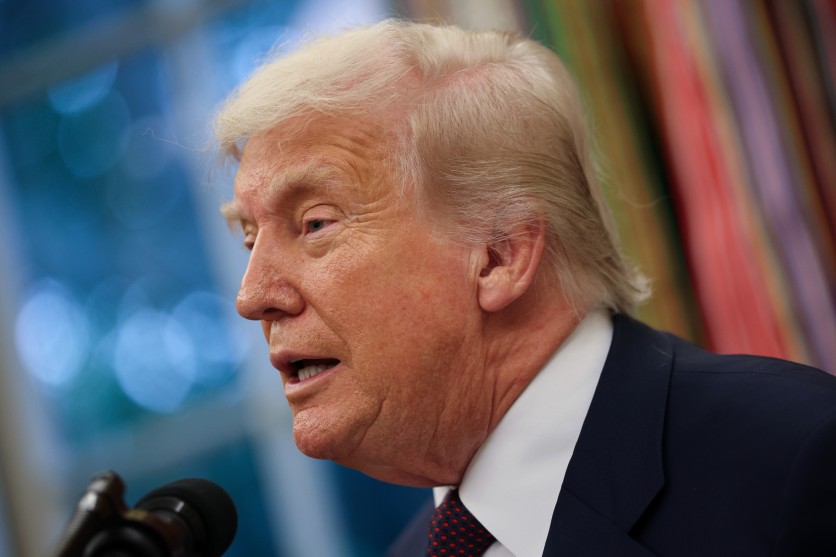
President Donald Trump is calling for a major leadership change at Intel, asking CEO Lip-Bu Tan to resign over alleged financial ties to Chinese firms.
The call came Thursday through Trump's Truth Social post, where he claimed Tan was "highly conflicted" and insisted he must "resign immediately."
Trump's strong statement comes shortly after Republican Senator Tom Cotton sent a letter to Intel's board raising concerns about Tan's past investments.
According to reports, Tan has invested over $200 million in Chinese chip companies, some of which may have links to China's military.
This situation has stirred up worry among lawmakers and investors, especially because Intel recently received $8 billion from the US government through the CHIPS Act to boost domestic chip production, Reuters said.
Now, with these concerns, Intel's role as a leader in US chipmaking could be at risk.
Intel Stock Drops 3% After Trump Targets CEO
According to CBS News, Intel shares fell by 3% after Trump's post. The company responded with a brief statement saying it remains committed to national security and plans to continue working with the administration.
Tan, who became CEO in March, has not yet publicly addressed the issue.
Meanwhile, Cadence Design Systems—a tech company where Tan was CEO for over a decade—recently pleaded guilty to illegal sales to a Chinese military university.
That case has only added more pressure to Intel and its board.
Tan has been a respected figure in the tech world, known for helping build startups and guiding chip companies.
However, new reports show his venture firm has partnered with Chinese state-owned investors. Though sources say Tan has sold some of these investments, public records still list many as active.
Some experts have warned that this situation sets a risky precedent. "You don't want presidents telling companies who should run them," said one investment manager. "But Trump's opinion still carries a lot of weight."
Intel has also been facing internal struggles. It's lost market share to competitors like AMD and Nvidia and has delayed some of its major factory projects.
The company also fired its previous CEO last year, making Tan's leadership even more critical.
Originally published on vcpost.com




